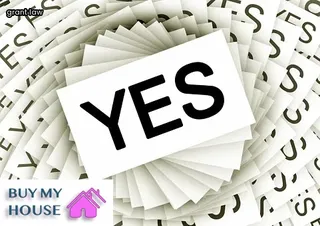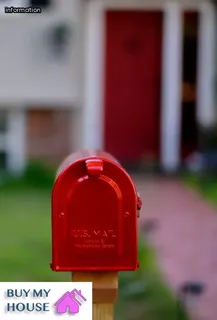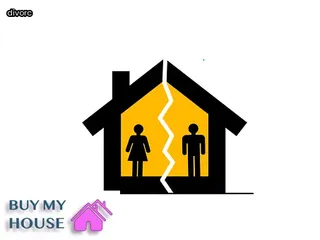Completing a South Carolina Quit Claim Deed for your house is beneficial in many ways. It is a fast and easy way to transfer ownership of property without involving an attorney or a court.
It eliminates the need to pay closing costs or attorney fees, making it a less expensive option than other methods of transferring ownership. The deed also allows you to transfer the title quickly, allowing you to move out of the house without waiting for lengthy paperwork to be processed.
Additionally, by using this form, you can specify who will receive the property after you have vacated it. This means that if something unexpected happens, such as death or bankruptcy, you can ensure that your wishes are carried out with regard to who will own the property after you are gone.
Finally, using this form helps ensure that all parties involved understand their rights when it comes to the property and that all parties are held accountable for any debts which may be attached to the property.

In South Carolina, there are several different types of deeds that can be used to transfer ownership of property. The most common type is the Warranty Deed, which guarantees that the seller owns the property being sold and is legally able to transfer it to the buyer.
A quitclaim deed is another popular option for transferring ownership in South Carolina. Unlike a warranty deed, a quitclaim deed does not guarantee any title or ownership rights from the seller; instead, it provides only whatever interest they may have in the property.
The Quit Claim Deed is often used in situations such as divorce settlements or when a family member is transferring their interest in a house to another family member. It's important to understand that while this type of deed can be completed without an attorney, it does come with certain risks since no title assurance is provided.
Before completing a Quit Claim Deed for your South Carolina house, you should make sure you understand all the details involved in order to avoid any potential legal issues down the line.
In order to be valid, a quitclaim deed in South Carolina must meet certain requirements. The deed should include the names of both parties involved and clearly state who is transferring property rights.
It should also include a legal description of the real estate being transferred, a notarized signature from both the grantor and grantor’s agent, and it must adhere to all local laws and regulations. Additionally, all quitclaim deeds must be recorded with the county Clerk of Court in the county where the property is located.
This recording provides public notice of the transfer of ownership rights and protects both parties from future claims on the property. When transferring real estate in South Carolina, it's important that all parties involved understand their legal obligations and follow all applicable laws for a successful Quit Claim Deed.

Transferring property with a South Carolina Quitclaim Deed is an efficient way to ensure that the ownership of your house or other real estate changes hands. To complete this process, there are certain steps you must take.
First, you will need to obtain a South Carolina Quitclaim Deed form from your county clerk's office. The form should include the names of all parties involved in the transfer as well as a description of the property being transferred.
Once this information is filled out on the form, it will need to be signed and notarized before it can be submitted for recording at the same clerk's office. After recording, you will receive a copy of the recorded deed which serves as proof that ownership has changed hands.
In order to ensure that the transfer is legal and binding, it is important to make sure all documents are completed accurately and thoroughly prior to submission for recording.
Filling out a South Carolina Quitclaim Deed Form is an important step when transferring ownership of a property. It is first necessary to obtain the form, which can be done through the county register of deeds office or the South Carolina Real Estate Commission website.
Once you have the form, make sure to read it carefully and understand all the instructions before beginning to fill it out. You will need to include information such as your name, address, and deed reference number.
Additionally, provide the details of the grantor and grantee, including their full legal names and addresses. The document must then be signed by both parties in front of a notary public who will act as witness.
Lastly, ensure that all paperwork is filed with the county register of deeds office for processing and recording. With these steps followed correctly, you should have no trouble completing a South Carolina Quitclaim Deed Form for your house.

Filing a Quitclaim Deed in South Carolina can be a fairly straightforward process, but it is important to avoid common mistakes. One of the most important steps is to ensure that all of the paperwork is filled out correctly and completely.
Failing to include all of the necessary information can lead to delays and errors in processing. Additionally, it is essential to make sure that all parties involved are listed on the deed, as well as any other appropriate documentation such as a notarized signature or Power of Attorney.
Furthermore, be sure to check with your county office for any local requirements related to filing a Quitclaim Deed in South Carolina such as fees or taxes. Finally, having a qualified attorney review your paperwork prior to submission can help identify potential issues and ensure that everything is done properly and efficiently.
Completing a South Carolina Quit Claim Deed form to transfer ownership of your house is relatively simple if you understand the process and follow all the steps. To begin, make sure you have all the necessary information, such as the names and addresses of the grantor (current owner) and grantee (new owner), legal description of the property, and consideration amount.
Once these details are filled out correctly on the deed form, both parties must sign it in front of two witnesses, who also must sign and provide their address. The document should then be taken to a notary public for notarization.
The notary will ask each party to present valid identification before verifying their signatures. They may also require that each party confirm that they are signing voluntarily and without coercion or duress.
After this part is completed, the deed should be recorded with your county's Register of Deeds office within 30 days. Following these steps will ensure that your transfer of property is legally binding and properly recorded.

Filing a South Carolina Quitclaim Deed Form is an important step in the process of transferring ownership of a property. It is important to remember that you must file your deed form with the Register of Deeds Office in the county where the real estate is located.
The Register of Deeds will record the deed, and then provide you with a copy for your records. When filing your Quitclaim Deed, it is important to make sure all information is filled out correctly, including names and addresses.
Additionally, be sure to sign and date the form in front of a notary public. Once your Quit Claim Deed has been filed, you can keep it on file or certify it as proof of ownership if needed.
Finally, you may need to pay filing fees when submitting your Quit Claim Deed Form which can vary depending on the county and state requirements.
After you have completed and submitted your South Carolina Quitclaim Deed, it is important to know what happens next. First, the deed needs to be recorded in the county where the property is located.
Once it has been recorded, a copy of the document needs to be provided to all parties involved. This will serve as evidence that the transfer of ownership has taken place.
Additionally, if there are any taxes due on the property, they must be paid before the transfer can be finalized. Lastly, it is important for all parties involved to keep copies of their documents for future reference in case any issues arise with ownership in the future.

If you're looking to complete or file a South Carolina Quit Claim Deed for your house, there are several resources available to help you. An experienced real estate attorney is an excellent place to start if you have questions or need assistance understanding the process.
They can provide advice on what forms you need, how to properly fill them out and make sure that all the necessary steps are taken. Additionally, most counties in South Carolina have a Register of Deeds office where they can help with the filing process and answer any questions you may have.
You can also find online tools and guides to help walk you through the process step by step. It's important that when filling out the form, you include all of the essential information such as names of parties involved, legal descriptions of property and other relevant details so that everything is accurate.
Utilizing legal forms to complete your South Carolina quit claim deed process can be advantageous, and is the recommended way to go about this process. A quit claim deed is a legal document that transfers ownership of a property from one party to another, and in the state of South Carolina it is important that this document is correctly filled out and filed in order for it to be valid.
By using legal forms, you ensure that all necessary information is included, such as the name of the grantor (the individual transferring the property) and grantee (the individual receiving the property), as well as any available warranties. Furthermore, using these forms helps guarantee compliance with local laws and regulations, which can help save time when filing at the county courthouse.
Additionally, utilizing legal forms for your SC quit claim process can provide added peace of mind knowing that everything has been done correctly.

When transferring ownership of a house in South Carolina with a quit claim deed, it is important to be aware of the potential risks and disadvantages associated with this method. Firstly, it does not provide any guarantees that the property being transferred will be free from liens or encumbrances.
This means that if there are any outstanding debts against the property, they may still be enforceable against the new owner even after transferring ownership by quit claim deed. Additionally, if there is an issue with title to the property, such as fraud or forgery, then this can lead to costly litigation down the line.
Furthermore, if there are discrepancies between what has been included in the deed and what has been stated in other documents relating to the transfer of ownership, then these need to be addressed prior to completing the quit claim deed. Lastly, due to its legal nature and binding effect upon completion, it is always advisable to consult an attorney before transferring ownership in South Carolina by quit claim deed.
Yes, there is an easier, faster way to get your South Carolina Quit Claim Deed completed! A Quit Claim Deed is a legal document that transfers ownership of real estate from one person or entity to another. Completing this form can be daunting, as it requires detailed information about the property and its current owner.
Fortunately, there are resources available to help you quickly and accurately complete your SC Quit Claim Deed. From step-by-step instructions and forms to professional assistance, you can find the guidance you need to ensure that the deed is properly filed with the county recorder’s office.
Doing so will protect your rights as the new owner of the property and ensure a smooth transition for all parties involved. With the right resources and guidance, completing your South Carolina Quit Claim Deed does not have to be difficult or time consuming.

When it comes to completing a South Carolina Quit Claim Deed for your house, it is always beneficial to seek professional advice from a licensed attorney. An attorney can help guide you through the process, ensuring that you understand all of the legal terminology and implications associated with transferring ownership of property.
Additionally, an experienced lawyer can identify any potential issues with the deed or provide advice on how to properly complete the transfer of ownership and protect yourself legally in the process. Consulting with an attorney is also important if there are multiple people involved in the quit claim deed, as they can ensure everyone’s rights are protected and any potential disputes are managed properly.
Attorneys are also well versed in South Carolina laws regarding real estate transactions, so they can provide invaluable insight into your situation and make sure everything is handled correctly and efficiently.
Transferring property through a South Carolina Quit Claim Deed can have various tax implications that depend on the circumstances of the transfer. It is important to research and understand all applicable state and local taxes when transferring a home through a SC quit claim deed, as different types of taxes may be payable.
For example, if the home is being transferred between family members, certain exemptions may apply for state transfer taxes. Additionally, it is not uncommon for local governments to impose additional taxes on transfers of real estate.
It is essential to be aware of any special assessments or other fees that may be due when transferring property through a SC quit claim deed as these can add up quickly and must be paid in full before the transfer can be completed. It is also important to note that some jurisdictions require quit claim deed transfers to register with their offices in order for the transfer to become legally binding.
Failure to do so could result in costly fines and penalties.

When giving up ownership rights to a property located in South Carolina through a quit claim deed, it is important to understand the process and how to protect your interests. It is essential to use only state-approved forms, as well as understand any local requirements or restrictions that may apply, such as recording fees or notarization requirements.
It is also important to provide accurate information on the deed, including all parties involved in the transaction and all legal descriptions of the property. Furthermore, it is crucial to ensure that all parties sign the deed before submitting it for recording.
Finally, make sure that you receive a copy of the recorded deed from your county’s recorder of deeds office for your records. Taking these steps will ensure that your interests are protected when giving up ownership rights through a quit claim deed in South Carolina.
Completing and filing a South Carolina Quit Claim Deed for your house is an important legal process that requires careful attention to the specifics. Although there are various resources available, such as county offices and online legal services, that can provide helpful guidance and direction, some individuals may prefer to receive additional assistance and information from outside sources.
For those interested in learning more about completing and filing a South Carolina Quit Claim Deed, there are a few options for obtaining additional resources. The SC Bar Association offers a wealth of information on their website, including a comprehensive section dedicated to real estate law.
They also provide access to free legal advice from experienced attorneys across the state. Additionally, local libraries often have books and other materials related to completing deeds in South Carolina; these can be borrowed or used onsite for research purposes.
Online legal guides can also be beneficial; many offer step-by-step instructions for completing quit claim deed forms as well as information about filing them with the appropriate county office. Finally, individuals may want to consult with an attorney who specializes in real estate law if they have specific questions or need further clarification.

When completing a South Carolina Quit Claim Deed for your house, you may need other documents in addition to the deed.
These can include a Certificate of Title, which is filed with the county Register of Deeds and verifies that no liens are attached to the property; a Warranty Deed, which transfers ownership from one party to another and contains warranties against any prior claims or liens; an Affidavit of Heirship which is used when there is no will or death certificate available; and a Release of Lien form if you wish to remove any liens that may be on the property.
Additionally, if you are selling the property, you will need proof that all outstanding taxes have been paid on it.
Lastly, if the property was legally held by someone else before it was transferred to you, then documentation showing their permission for you to use it would also be required.
When it comes to filing a South Carolina Quit Claim Deed for your house, you may be eligible for financial assistance depending on your circumstances. If you are over 65 years old, disabled, or have low income, there may be public benefit programs that can help pay a portion of the associated fees.
Additionally, some cities and counties in South Carolina offer grant programs to assist with legal forms such as quit claim deed forms. You can also inquire about fee waivers and subsidized legal services through organizations like Legal Services Corporation.
Contacting your local Bar Association or Public Defender's Office is another way to find out what resources are available in your area. Furthermore, if you meet certain criteria, there may be other options available such as pro bono legal representation from private firms or law school clinics.
Researching all the assistance options available is key when completing and filing a quit claim deed in South Carolina.

In South Carolina, legal disputes can arise when a quit claim deed is not properly executed or filed. It is important to understand that the execution and filing of a quit claim deed must meet specific requirements in order to be legally binding.
If either of these steps is done incorrectly, it can lead to costly legal battles for the involved parties. To minimize the potential for legal disputes, all involved parties should ensure that they fully understand the necessary steps of completing and filing a South Carolina quit claim deed.
This includes understanding how the deed needs to be signed, what forms need to be filled out and submitted, and who needs to provide notarization for documents. In addition, all parties should make sure that any other relevant paperwork such as title searches are completed accurately and completely before submitting their quit claim deed.
Following these steps will help ensure that your South Carolina quit claim deed is properly completed and filed so that you can avoid any unnecessary legal disputes in the future.
Filing a Quit Claim Deed in South Carolina does not necessarily require an attorney; however, having the assistance of an attorney is recommended. An attorney can help you make sure that all the paperwork is properly completed and filed correctly with the County Recorder’s Office.
The Quit Claim Deed must be properly signed and witnessed before it can be accepted for filing. This document is used to transfer ownership of real estate from one person to another without any warranties or guarantees regarding its title.
Having an experienced attorney review and guide you through this process can ensure that your deed meets all legal requirements and will be legally binding when it is recorded. Before filing a quit claim deed in South Carolina, it is important to consider whether or not you need an attorney to help you complete the process.

Completing a South Carolina Quit Claim Deed for your house may be as simple as filling out the proper paperwork, but it is important to know the cost associated with filing a quit claim deed in South Carolina. There are several fees associated with filing a quit claim deed in South Carolina and these fees vary from county to county.
Generally, there is a nominal fee for recording the document with the Register of Deeds office, which can range from $30 to $50. Additionally, if additional documents or forms need to be filed along with the quit claim deed, additional fees may apply.
It is important to contact your local Register of Deeds office for more information on specific fees associated with filing a quit claim deed in South Carolina.
Filing a Quitclaim Deed in South Carolina is a straightforward process that can be completed quickly and easily. In order to file a Quitclaim Deed in SC, you must first obtain the appropriate form.
This can be obtained from the county recorder's office or online. Once the form is completed with all required information, including names of grantor and grantee, property address, and legal description, it must be signed by both parties.
The original deed must then be taken to the county recorder where it will be recorded and filed with the court. Before filing, taxes and recording fees should be paid in full as required by law.
After filing is complete, certified copies of the deed will be mailed to each party for their records. By following these simple steps, you can successfully file a Quitclaim Deed in South Carolina and transfer ownership of your house.
A quit claim deed is a legal document that transfers ownership of real estate from one person to another in South Carolina. It is often used when transferring property between family members or during a divorce.
The South Carolina quit claim deed must include the full names of the grantor and grantee, the exact location of the property being transferred, and any restrictions or limitations on the use of the property. The deed must also be signed by both parties in front of a notary public and filed with the county recorder’s office.
To complete a South Carolina quit claim deed, begin by preparing all documents needed for filing, including any additional forms required by your county recorder’s office. Once all documents are ready, sign them in front of a notary public and submit them to your local recorder’s office for review and recording.
After submitting your quit claim deed documents for recording, you will then receive confirmation that ownership has been successfully transferred to the grantee.